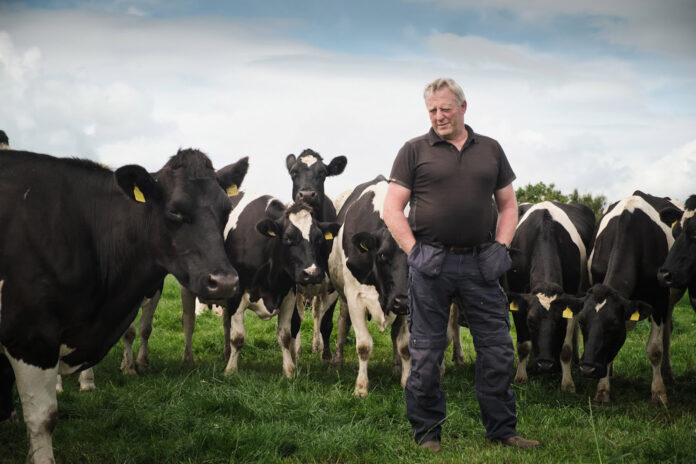
Welcoming the announcement of the 2025 Dairy Beef Weighing Scheme, the chairperson of ICMSA’s Livestock Committee, Michael O’Connell, said the “very modest” sums involved nevertheless represented another step towards the development of a vibrant and ’win-win-win’ Dairy Beef sector.
In keeping with ICMSA’s lobbying on the issue, the additional €20 per head is available to either the breeder of the calf who keeps the calf for a defined period or the rearer of the calf. Explaining that both parties, breeder and rearer, needed to be paid, Mr O’Connell said that calf-to-beef systems have become very specialised and involve a slow return on investment due to the timeframe between buying calves and time of slaughter. That was the reason why ICMSA had pushed vigorously for payments for both parties to the process.
“The Weighing Scheme announced yesterday (20 March) is effectively a ‘carbon copy’ of the 2023 CSP Dairy Beef Scheme; it’s straightforward and is essentially an online box-ticking exercise on www.agfood.ie. Both the breeder and the rearer are eligible to apply for the scheme but payment will only be made once on each calf, there will be no duplication of payment. The 2025 scheme is a one-year programme for the additional €20 per head to be known as 2025 National Dairy Beef Weighing Scheme.
“The scheme will cater for a minimum of 5 calves and a maximum of 50 calves to be paid per herd with an action of weighing calves and submitting to ICBF before 1 November of the scheme year. Calves born between 1 July 2024 and 30 June 2025 will be eligible and the only criteria within the scheme specifications is weighing where the calf must be a minimum of 12 weeks old and be on farm for a minimum of 10 days,” said Mr O’Connell.
Noting the budget allocation of €4million made available to the scheme which will cater for a maximum of 200,000 calves, Mr O’Connell said that with the number of calves being reared on farms this year – most likely due to the high cost of store cattle -there was a distinct possibility that each farmer may not receive the payment on all eligible calves.
“There will not be a linear reduction on the value of the payment, but the number of eligible calves a farmer has may be reduced in line with overall over-subscription to the scheme. Bluntly, we are disappointed by this kind of penny-pinching, and it’s emblematic of the ‘two-steps-forward-one step-back’ attitude the Department has to a sector that could really make a difference on a number of fronts. ICMSA would urge the Minister to use the underspends in other schemes to ensure that all eligible calves are paid the full amount – itself a very modest headage payment said Mr O’Connell.
Mr O’Connell also pointed out that the breeder, who may not have applied for the Dairy Beef Welfare Scheme in 2024, can apply for both schemes in 2025.
“If a farmer is using a beef breed bull that is three stars or better under the Dairy Beef Index and three stars or better under the DBI beef sub-index, the farmer will receive a payment of €20 for each calf born. Provided the breeder has calves eligible under the terms and conditions of the Dairy Beef Welfare Scheme, that farmer may be eligible for up to €40/head on calves between both schemes. We are convinced that there’s real potential here and we already see that in excess of 60% of the national kill is coming from the dairy herd with huge progress being made on the quality of beef calves coming from the Dairy herd.
“This is picking up pace and gaining momentum and that’s despite the very modest support that’s been given the development of Diary Beef and that on foot of ICMSA’s design and lobbying for the Scheme. We will continue to advocate for what is ‘win-win-win’ in terms of sustainability, welfare and integration in our 2026 Pre-Budget Submission. We think that investing in dairy beef is effectively an ‘open goal’ for Irish agriculture,” concluded Mr O’Connell.







